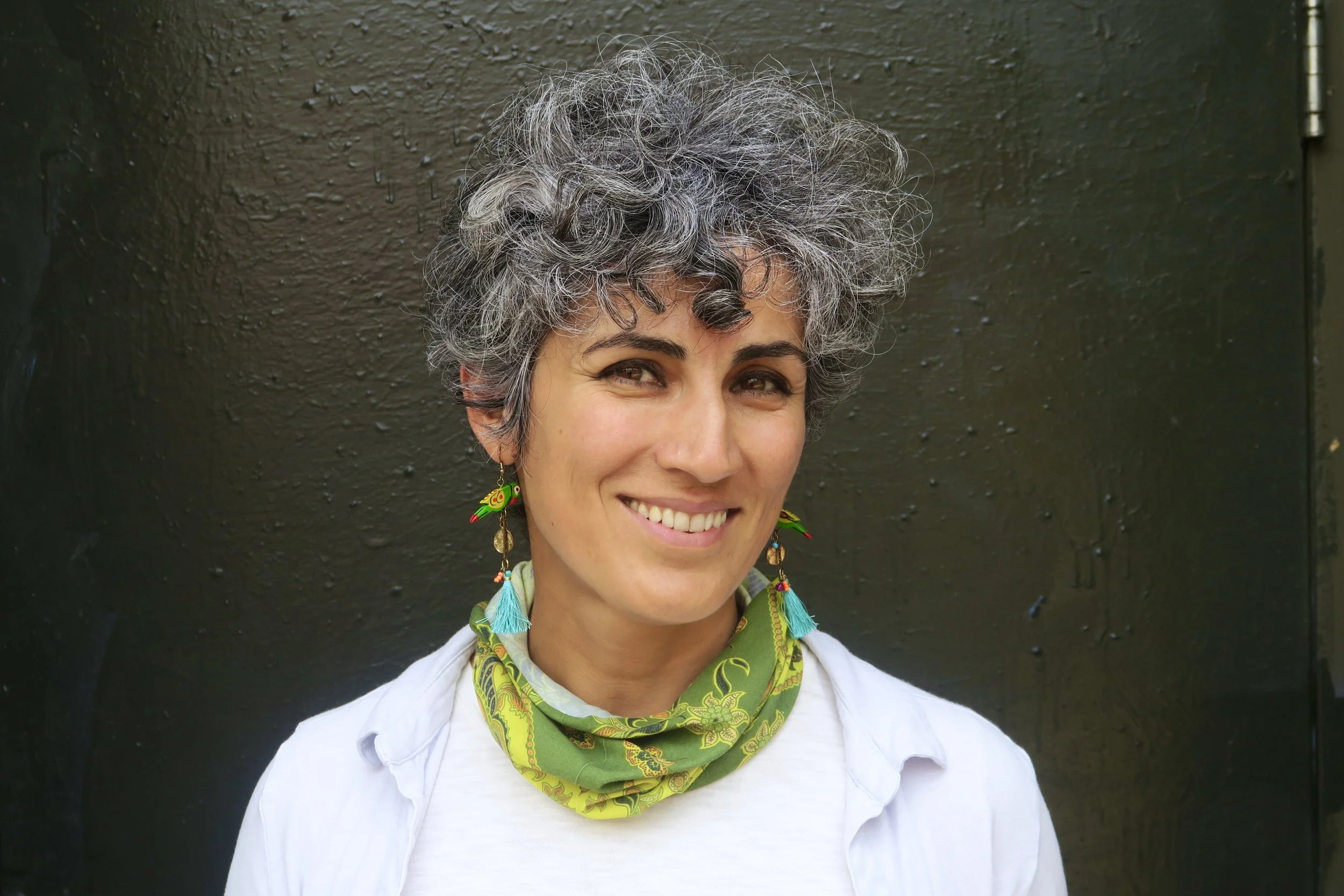“ In My Fluffy Pajama, From Silk Road To San Francisco “
"In My Fluffy Pajama" expands trauma-informed art workshops for immigrant communities. Led by Iranian immigrant artist Badri Valian and co-facilitated by craft-as-therapy expert Kathryn Vercillo, these workshops combine co-storytelling, mapmaking, textile art, and sensory recall to help participants verbalize and visualize their narratives of immigration, displacement, relocation, resilience, and belonging.
"In My Fluffy Pajamas" is inspired by Badri's personal story. She immigrated to the United States from Iran ten years ago, leaving many of her favorite clothes and belongings behind, including her beloved fluffy pajamas. Despite wanting to take her pajamas, she could only check in two suitcases, which were already filled with more important items, and she couldn't afford to pay for extra luggage weight.
In these workshops, immigrants will share stories about their favorite belongings left behind during their journey to the United States, discussing clothes, food, and nature.
Interested participants must send a photo of their torso in pajamas in advance. During the workshop, they will interact with the printed image of their pajamas through drawing, textile collage, and stitching.
Participants must be older than 18 and do not need prior art training. They write words in their language, and all shared stories will remain confidential.
After the series of workshops, our aim is to culminate the project in a public exhibit showcasing participants' artworks, amplifying their voices, and promoting healing, empowerment, and community awareness.
From Badri Valian, her series of artworks about her experiences of immigration. In this artwork, different medium like thread, fabric and markers are used for stitching, textile art and collage.
About Badri Valian:
Badri Valian is a social practitioner, workshop performer, and participatory interactive installation artist residing in San Francisco. Born and raised in the mountainous central region of Iran, where the historic Silk Road intersected, her childhood was profoundly influenced by the interconnectedness of the world from East to West, long before the advent of online communication and technological transportation.
Badri's maternal indigenous Kurd ethnic roots trace back to Kurdistan, near the Turkish and Iraqi borders; displaced to the central region of Iran. On her paternal side, she carries South Asian ancestry from Sri Lanka and Bangladesh. Her family tree, inherited from her father, and a DNA test connecting her to numerous cousins in Asia fueled her curiosity about the ties between far Asia and South Asia, exploring the pivotal role of the Silk Road in uniting these regions.
Over the past few years, Badri has traveled extensively to Asian countries, particularly Korea, China, and Nepal. Her high-altitude expeditions in the Himalayas and trekking in other Asian nations provided insights into Asian cultures and traditions, revealing commonalities with her Iranian upbringing.
Currently, her interactive art installation, "A Cup Of Tea," is showcased at the Kyoto Museum in Japan. Badri has garnered prestigious recognition as the award recipient of the "Daughters of the American Revolution" for her universal language in advocating for democracy.
Having studied Fine Arts in Iran, Badri has also earned several other national awards for her creative techniques, public-oriented, and socially engaged art projects. Her artwork delves into pressing social issues, addressing poverty, systemic racism, dictatorships, and forced displacements.
Experiencing prevalent censorship, gender discrimination, and inequality in Iran juxtaposed against her life in the U.S, Badri felt compelled to use her art as a means to amplify the voices of underserved minorities, including immigrants, BIPOC, LGBTQ+, and marginalized communities. Her preferred approach involves participatory and discursive interactive workshops, integrating diverse communities to weave new social fabrics while tackling global issues. Notably, her ongoing workshops on childhood traumas at ARTogether in Oakland, the Art Venture Gallery in Half Moon Bay, and the California College of the Arts in San Francisco aim to foster healing.
In the past year, in addition to her current exhibition in Japan, Badri has conducted interactive art workshops on displacement at notable institutions including the Santa Fe Art Institute AIR, Berkeley University, Clarion Alley Mural Project, Legion of Honor Museum, and Yerba Buena Center for the Arts in San Francisco.
About Kathryn Vercillo:
Co-facilitator Kathryn Vercillo is a San Francisco writer/artist who researches the complex relationship between art and mental health. She works to break down the traditional binary narrative of the “tortured artist genius” vs. “art is therapy,” and instead explores the nuances of how art assists us in processing the challenges of life but can be impacted in myriad ways by mental health symptoms, difficulties in life circumstances, socio-economic and political factors, and so on.
Kathryn spent over a decade establishing an expertise in crochet-as-therapy including developing 100 crochet exercises for healing various aspects of life, which she published in her book Hook to Heal, and which have been utilized by therapists and educators in a variety of settings including substance recovery centers and prisons. She has facilitated large scale collaborative crochet projects, such as the Mandalas for Marinke project, which included 1000+ handcrafted pieces made by 300+ global contributors to raise awareness about depression, suicide, and crafting to heal.
Kathryn is the author of nine books, the most recent of which is The Artist’s Mind: The Mental Health and Creative Lives of Famous Artists. She utilizes her skills in writing both online and in print to amplify the voices of others and to raise awareness about the issues of concern to her. Kathryn lives in San Francisco but grew up in Arizona where she worked with immigrants, refugees, and people from the indigenous community through a number of organizations including the foster care system and International Rescue Committee.
Kathryn holds a Masters Degree in Psychological Studies from California Institute of Integral Studies. NOTE: Kathryn is not a licensed therapist and doesn’t perform therapy but facilitates workshops rooted in a trauma-informed approach and provides referrals as needed.


